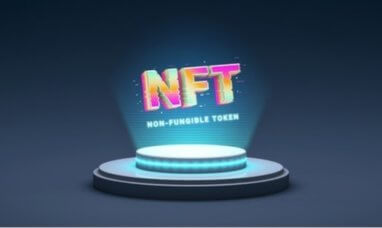Options are a very powerful tool in financial markets. More specifically, they are often used in the equity market, otherwise known as the stock market. They allow investors to spend less money to take a larger position without a lower amount of risk. Here are the terms to understand for trading options.
In a nutshell, an option contract gives you the chance, or the option, to buy or sell something at a specific price in a fixed amount of time. Simply buying an option contract will cost you a fraction of the full price, and holding it presents no further risk than the initial cost.
However, there are a lot of terms and financial jargon that are used for options. It is an advanced method for trading stocks, so let’s dive into the terminology to use option contracts.
Basic Terms For Options
Here are the most basic terms you need to know in order to trade options.
Call Option
A call option is a contract to buy a stock at a specific price in a fixed amount of time, typically about 30 days. Call options are offered on a fixed cycle on the third Friday of every month, but some are offered on a weekly basis. Each contract gives you the chance to purchase 100 shares of the underlying stock.
Put Option
A put option is very similar, it gives you the right to sell 100 shares of the underlying stock at a specific price within a fixed amount of time. This is useful if you’d like to sell or write puts for extra income, protecting you from asset losses and enabling the buyer to purchase your shares at a fixed price. It is also useful for short selling or profiting on a decrease in price.
Premium
The premium is the total price of the option contract. For example, if a call option is worth $0.20 per share, then one option contract would cost $200 for the right to buy 100 shares. Similarly, the option seller would collect the same premium when the option buyer gets the contract.
Strike
The strike, or strike price, is the agreed-upon price to buy or sell the underlying shares. For example, if a call option is at a strike price of $20, then the holder of the option contract has the right to buy 100 shares at $20 each after paying the premium.
Reading an Option Chain
Below is a chart of options contracts, also known as an option chain.
It’s important to be able to understand this chart, so let’s demystify it by explaining each column.
Expiration
This is the date that the contracts expire. At any point on or before this date, the contract be used or exercised in order to buy or sell shares at the strike price.
Strike
As mentioned earlier, this is agreed-upon underlying stock price.
Symbol
This symbol represents the name of the underlying stock ticker and the alphabetical symbol for each month.
Last
This is the price per share that the last contract was traded. To calculate the premium, or total cost of the contract, multiply this number by 100, as each contract is for 100 shares.
Chg
This is the change in price of the contract over time. This can be useful for calculating odds and for buying and reselling contracts.
Bid
This price represents the price per share that a buyer is willing to pay for one contract. If you sell a contract, this is the price per share you’ll get.
Ask
This price represents the price per share that a seller is willing to offer for one contract. If you buy a contract, this is the price per share you’ll pay.
Vol
This column represents volume, or the total amount of contracts at this strike price that have been bought or sold.
Open Int
This column represents the open interest, or the total amount of contracts that are currently being held and have yet to be used. This can be a powerful indicator of future price movements.
Describing Options Value
Not all options have the same value. As you may have noticed, some contracts can be purchased for a strike price that is already valuable. Here is how they are described.
In The Money (ITM)
An In The Money or ITM option is an option that already has inherent value. In other words, the contract is already worth exercising when you buy it. For example, a call option to buy 100 shares at a price that is lower than the underlying stock price.
These contracts are generally more expensive, but they are also more reliable and stable.
Out of The Money (OTM)
An Out of The Money or OTM option is an option that has negative value if exercised. For example, a put option to sell 100 shares at a price that is lower than the underlying stock price. If you exercised that contract, you would take a loss.
These contracts are generally inexpensive, so they attract a lot of buyers. However, they have a much lower chance of becoming value, so they are riskier to purchase.
At The Money (ATM)
Finally, At The Money or ATM options are at the exact same strike price as the underlying stock price. These contracts have no value until the underlying stock price moves for or against the contract. These are mostly useful for strategies that capture volatility in either direction.
Options Buyers and Writers
Options are a type of derivative that is traded separately from the main stock exchange, a market that is also called Over-The-Counter or OTC. A derivative is a type of financial contract that is based on an underlying security, such as shares on the stock market.
Options Holder
The trader that purchases the option contract is called the holder and can choose to exercise the contract or let it expire worthless. The holder has the right, but not the obligation, to exercise their contract.
This means that the only risk an option holder takes is the initial premium they pay to obtain and hold the contract.
Options Writer
The creator and seller of an options contract is called the writer. This is because option contracts were originally written on a piece of paper and sold to other traders.
An options writer is kind of like a casino; they accept bets or premiums from option buyers, but they only need to pay out the stock or sale if it becomes profitable for the holder to exercise.
As the majority of option contracts expire worthless, option writing provides a steady and immediate source of income for skilled option writers.
Learning More About Options
This terminology is the foundation of the options industry, but it is really only scratching the surface of the very complex and expansive world of financial derivatives.
Featured Image: Twenty20








